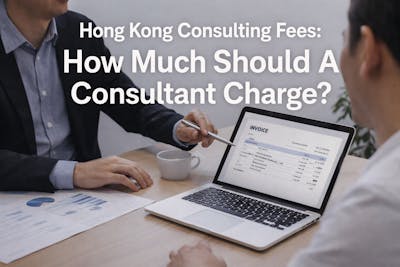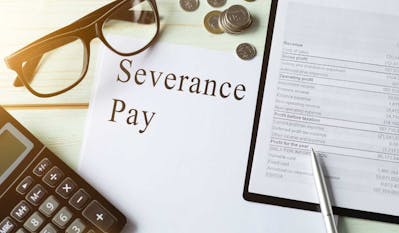Hong Kong’s offshore tax exemption allows businesses to avoid profits tax on income earned entirely outside the city. But this is not automatic.
In 2026, with stricter rules and the FSIE regime, companies must prove that all profit-generating activities take place offshore. The Inland Revenue Department (IRD) focuses on the substance of operations, not company labels.
With proper documentation and the support of AI-powered compliance tools, qualifying for tax exemption remains possible and highly beneficial for global businesses operating from Hong Kong.
Is Hong Kong Really Tax-Free?
Despite its reputation as a low-tax hub, Hong Kong is not tax-free. Instead, it follows a territorial tax system, meaning only profits arising in or derived from Hong Kong are subject to the profits tax.
- Foreign-sourced income is generally not taxable in Hong Kong.
- Income is only exempt if you can prove it comes from activities performed entirely outside Hong Kong.
- The Inland Revenue Department (IRD) assesses where the core profit-generating activities take place, not just where your customers are or where you bank.
- Simply being registered in Hong Kong or calling yourself an “offshore company” is not enough.
Hong Kong offers low tax rates and no VAT or capital gains tax, but it still requires businesses to maintain proper records and demonstrate that their income is sourced outside the territory.
How Hong Kong Determines the Source of Profits
To qualify for an offshore tax exemption, a business must prove that its profits were earned entirely from activities carried out outside Hong Kong. This is a key principle of Hong Kong’s tax system, which follows a territorial basis of taxation.
The Inland Revenue Department (IRD) assesses each case based on the source of the profits. It does not rely on labels or on where your customers are located. Instead, it examines where your company actually carried out the profit-generating activities.
How Source of Profits is Determined
- Trading Profits: IRD looks at where contracts are negotiated and concluded, and where the main trading activities happen. If those steps occur outside Hong Kong, the income may qualify for a tax exemption.
- Service Profits: For service businesses, the IRD focuses on where the services are performed. If your staff or agents complete the work outside Hong Kong, the income may be treated as offshore.
What Doesn’t Decide Taxability
The following factors do not determine the source of profits on their own:
- Where your customers are located
- Your bank account location
- The invoicing currency
- Your website’s hosting location
These may be supporting details, but they are not enough to justify an offshore tax claim without clear operational evidence.
If your business activities take place in Hong Kong, the IRD will likely treat the income as Hong Kong-sourced and apply Hong Kong profits tax. But if you can prove that all core functions happened outside Hong Kong, you may qualify for an offshore tax exemption and reduce or eliminate your profits tax liability.
Modern Hong Kong companies often use AI-powered compliance tools to monitor where work is performed. These tools can help document business activity locations in real time and support your tax exemption filings.
Claiming Offshore Profits Treatment (Active Income)
There is no automatic or permanent offshore tax exemption in Hong Kong. Instead, each company must apply for an exemption on profits earned outside Hong Kong through its annual tax filings.
This process is known as making an offshore tax claim, and it involves submitting detailed evidence to the Inland Revenue Department (IRD) through the Profits Tax Return.
When to File Your Offshore Claim
- Your first Profits Tax Return is usually issued about 18 months after incorporation.
- You must file it with:
- Audited financial statements
- A detailed tax computation
- A written explanation of your offshore claim
- Supporting documents proving that all activities happened outside Hong Kong
Each year, the IRD will assess whether your income qualifies for a tax exemption based on updated facts and activities.
Key Requirements to Support Your Offshore Tax Claim
To succeed, you must demonstrate that:
- All income-generating activities occurred outside Hong Kong
- You have no clients, suppliers, or staff in Hong Kong
- You do not maintain a physical office in Hong Kong
- Your contracts are negotiated, signed, and executed offshore
The IRD places strong emphasis on documentation that proves the location of your core business functions.
FSIE: When Passive Foreign-sourced Income Becomes Taxable
While active income earned from profit-generating activities outside Hong Kong may qualify for an offshore tax exemption, the treatment of passive income changed significantly with the introduction of the Foreign-Sourced Income Exemption (FSIE) regime.
The FSIE framework provides that certain specified foreign-sourced income is subject to profits tax if received in Hong Kong, unless the company meets the required conditions.
What Is Covered Under FSIE?
Under the FSIE regime, the following types of passive income are taxable in Hong Kong unless an exemption applies:
| Effective Date | Covered Income Types |
|---|---|
| From 1 Jan 2023 | Interest, dividends, IP income (e.g., royalties), equity disposal gains |
| From 1 Jan 2024 | Disposal gains on non-equity assets (e.g., movable or immovable property) |
This applies only to multinational enterprises (MNEs) with entities operating in both Hong Kong and at least one other jurisdiction.
Who Is Affected?
If your business is part of an MNE group, the Inland Revenue Department will assess whether passive income received in Hong Kong qualifies for exemption. This means Hong Kong businesses receiving specified foreign-sourced income must prove that their profit-generating activities meet the required standards.
Relief Options to Avoid Taxation
To obtain a tax exemption under the FSIE regime, the following options may apply:
- Economic Substance Requirement: For interest and disposal gains, the company must show that it has adequate business operations, staff, and decision-making functions in the jurisdiction where the income arises.
- Participation Exemption: For dividends and disposal gains, if certain holding and substance conditions are met.
- Nexus Requirement: For intellectual property (IP) income, linking the income to R&D activities.
- Intra-group Transfer Relief: For qualifying asset transfers within a group, subject to approval.
Meeting these criteria reduces the risk of income tax being assessed on foreign earnings.
Global Alignment
Following refinements in 2024, the EU removed Hong Kong from its tax watchlist. This recognition confirmed that Hong Kong’s tax system now meets international standards for transparency, fairness, and substance-based taxation.
Hong Kong has also signed multiple double taxation agreements, helping businesses avoid duplicate tax paid in both jurisdictions when conditions are satisfied.
What Evidence the IRD Looks For (Active Income)
When claiming offshore status in Hong Kong, you must do more than declare your income as foreign-sourced. The Inland Revenue Department (IRD) conducts a detailed offshore status examination, reviewing whether your income arising from business activities truly qualifies as non-taxable under Hong Kong’s territorial system.
The burden of proof is on the taxpayer. To determine whether profits earned are taxable, the IRD evaluates the substance of your business operations, including where the income was generated and how deals were carried out.
What the IRD Looks For
To confirm that profits earned are offshore, the IRD typically requires documentation that supports every stage of your transaction cycle. This includes:
| Evidence Type | Why It Matters |
|---|---|
| Contracts and negotiations | Show where agreements were negotiated and signed (not in Hong Kong) |
| Emails and meeting notes | Indicate the location of key business decisions |
| Shipping documents and Incoterms | Trace the physical movement of goods and title transfer |
| Invoices and bank statements | Support the connection between offshore work and the payments received |
| Staff activity logs and agent info | Prove that no services were performed by a Hong Kong resident |
| Office lease agreements | Confirm there is no active Hong Kong office or local infrastructure |
| Accounting and audit records | Verify alignment between financial statements and claimed offshore profits |
| Capital expenditure breakdown | Demonstrates where investments were made and whether they relate to offshore work |
| Rental income reports | Required if claiming passive rental income as non-Hong Kong sourced |
First Profits Tax Return: Critical Timing
The first Profits Tax Return is usually issued 18 months after incorporation. This is your first opportunity to submit an offshore tax claim, and you must include:
- A complete set of audited financials
- Tax computation
- Documentation supporting your offshore status
- A written position paper explaining why your profits qualify for exemption
Why Strong Evidence Matters
Hong Kong’s tax system depends on facts, not assumptions. If even part of your income is generated or capital expenditure relates to Hong Kong operations, the IRD may reject your claim and assess full profits tax.
This applies to both corporate entities and unincorporated businesses, which must also prove that their income is fully offshore to benefit from zero tax treatment.
Common Reasons Offshore Claims Fail
Not all offshore claims are successful. Even if your business serves overseas clients or earns income from abroad, the Inland Revenue Department (IRD) will only grant an exemption if your profits earned can be clearly traced to income arising from activities conducted entirely outside Hong Kong.
Many businesses, including unincorporated businesses, assume that foreign income is automatically tax-exempt. However, the IRD evaluates profit-generating activities, not customer location or where a company is registered.
Common Pitfalls That Lead to Rejection
- Work performed in Hong Kong: If services or trading tasks are carried out in Hong Kong, whether by employees, contractors, or agents, the IRD may classify the profits as taxable under Hong Kong profits tax, even if the customer is overseas.
- Negotiating or signing contracts in Hong Kong: If a contract is concluded in Hong Kong, especially from a local office or by a Hong Kong resident, this could override otherwise offshore elements of the transaction.
- Inadequate or inconsistent documentation: A weak audit trail, missing contracts, or inconsistencies between invoices and email communications will cast doubt on the offshore nature of your transactions.
- Insufficient explanation in the first Profits Tax Return: Filing the first Profits Tax Return without a clear offshore position paper or supporting evidence often results in IRD enquiries or outright denial of the exemption.
- Incorrect application of FSIE exemptions: Multinational groups failing to meet the economic substance requirement under the FSIE regime may have specified foreign-sourced income, such as interest or rental income, treated as taxable in Hong Kong.
- Over-reliance on surface-level details: The IRD does not accept a foreign bank account or the fact that your company is not a Hong Kong resident as sufficient proof. What matters is where the core activities take place, not the company label.
Using AI tools to review and organize your submission can significantly reduce errors, highlight red flags, and ensure consistency across all required documents before filing your offshore tax claim.
Taxes and Indirects
| Item | Position |
|---|---|
| Profits tax (two-tier) | Corporations: 8.25% on the first HKD 2,000,000 of assessable profits, then 16.5%. Unincorporated businesses: 7.5% on the first HKD 2,000,000 of assessable profits; then 15% above that. |
| VAT / sales tax | None in Hong Kong. |
| Capital gains tax | No standalone capital gains tax. Trading gains may still be taxable under source rules. |
| Customs tariffs | Hong Kong is a free port with no general customs duties. Excise duty applies to liquor, tobacco, hydrocarbon oil, and methyl alcohol (administered by the Customs and Excise Department). |
| FSIE scope | Applies to in-scope MNE constituent entities receiving specified foreign-sourced passive income. Exemption is possible where economic substance, nexus, or participation conditions are met. From 1 Jan 2024, certain disposal gains on non-equity assets are also covered. |
Securing a Hong Kong Offshore Tax Exemption
Proving that profits are sourced outside Hong Kong depends on facts and records, not a formal status. Air Corporate can review your transactions against DIPN 21 and the FSIE rules to identify which profits may qualify for non-taxable treatment.
We can prepare a document checklist, align your audit trail, and draft the position paper you will use in your Profits Tax Return (PTR) filing with the IRD. If you proceed, we can also handle the PTR preparation and responses to IRD enquiries so the claim is accurate and well supported.
Need a compliant, evidence-led approach? Contact Air Corporate to review your facts, strengthen your filing, and reduce the risk of challenge.
FAQs
No, the offshore exemption is not automatic. To qualify, a company must prove that its profits derived from business activities took place entirely outside Hong Kong.
The IRD will examine whether the company’s profits are derived from offshore operations, not merely from the presence of overseas clients. Documentation and a proper audit trail are required under local tax laws.
Offshore income refers to income derived from activities conducted entirely outside Hong Kong. This includes service income from services performed offshore and trading income from contracts negotiated and completed abroad.
The IRD examines the substance of the transaction to determine whether the profits arising are truly offshore. Each claim is assessed on a case-by-case basis.
If your offshore exemption claim is rejected, the company's profits in question will be treated as Hong Kong-sourced and subject to profits tax. This means the company will need to pay tax on that income in accordance with local tax laws.
In some cases, you may face additional scrutiny on previous filings. If foreign tax has already been paid, you may be eligible for relief under a double taxation treaty.
No, having overseas clients does not automatically make your income offshore. What matters is where the profit-generating activities take place.
If services or deals are performed in Hong Kong, the service income is likely subject to Hong Kong tax. The IRD requires detailed evidence to support any offshore exemption.






